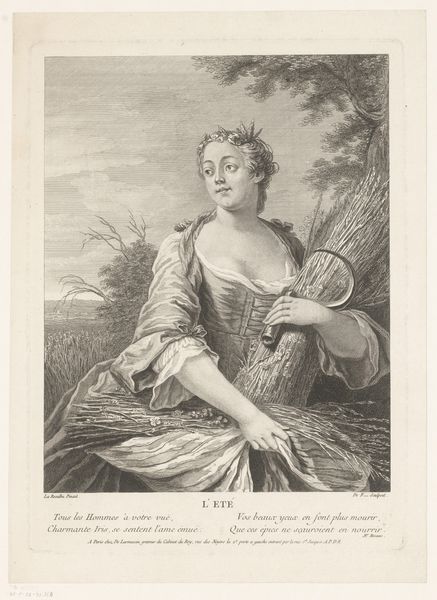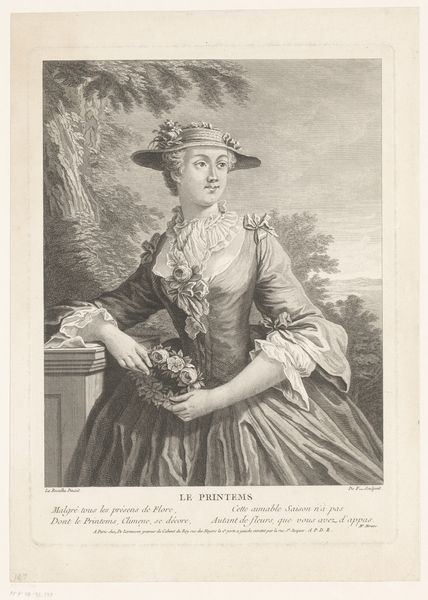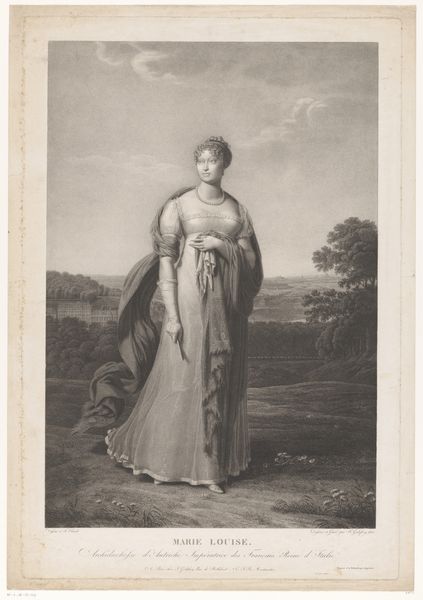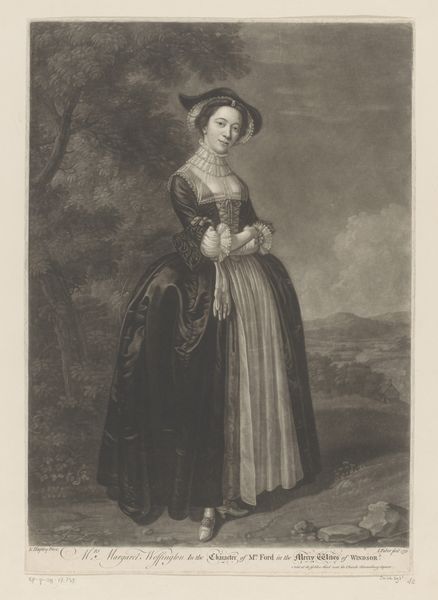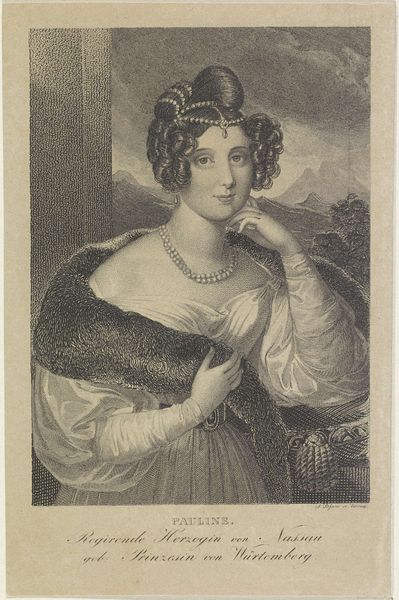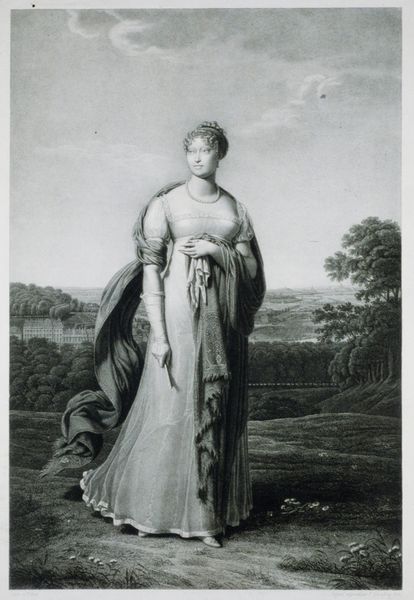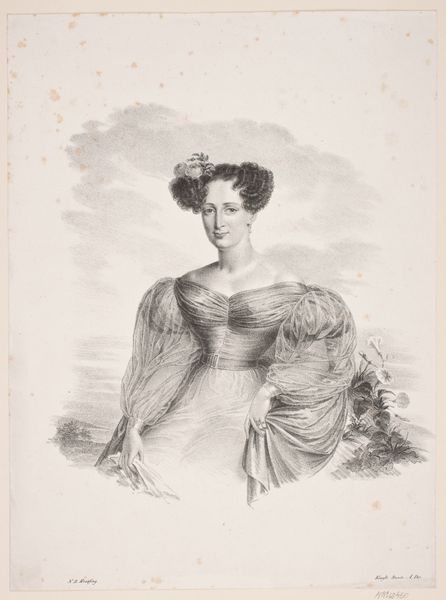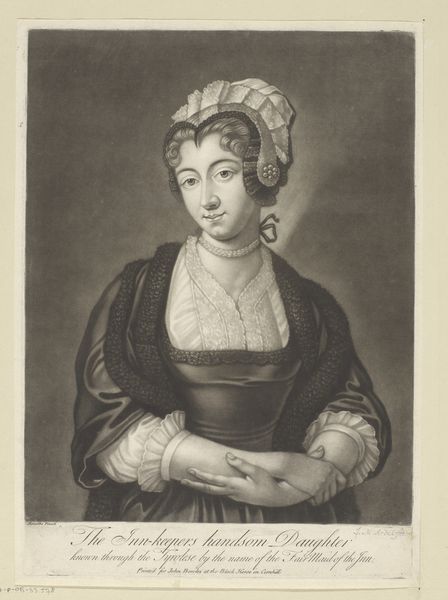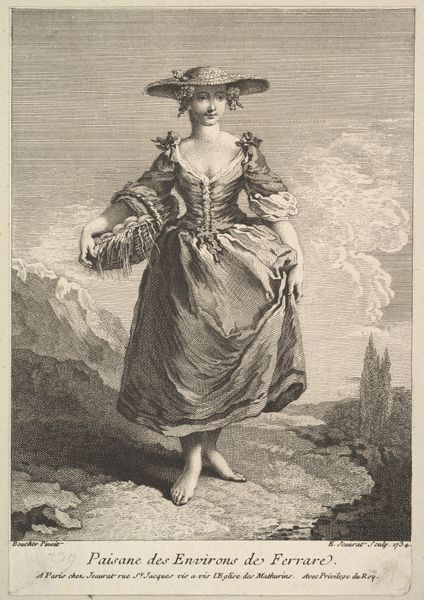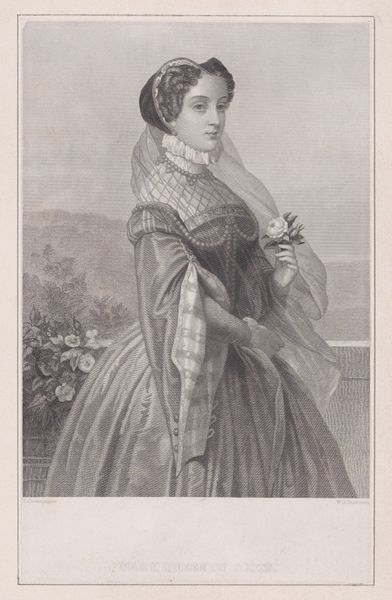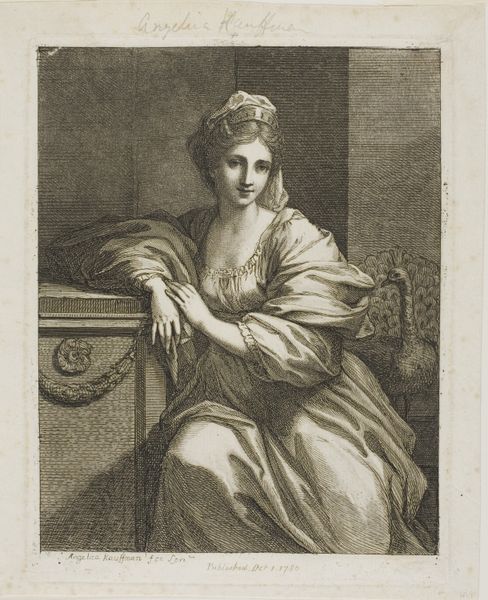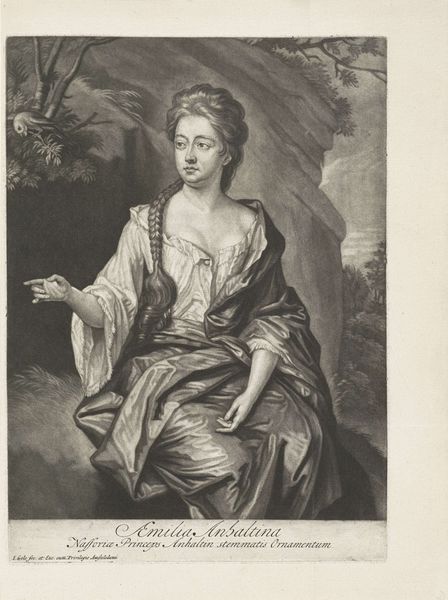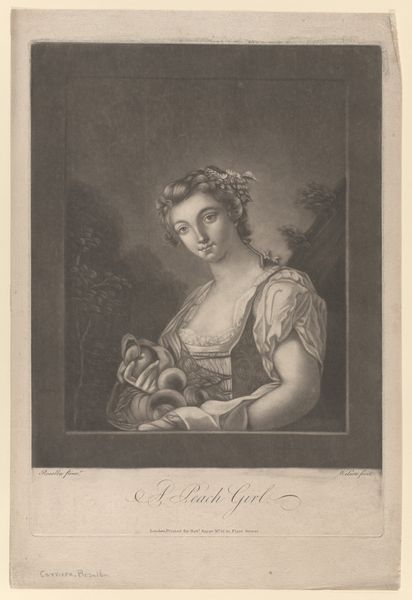
print, graphite, engraving
#
portrait
# print
#
pencil drawing
#
graphite
#
graphite
#
engraving
#
realism
Dimensions: height 139 mm, width 101 mm
Copyright: Rijks Museum: Open Domain
This is Johann Wilhelm Kaiser's portrait of Charlotte, an engraving. Made in the Netherlands, in the mid-19th century, the piece reflects the cultural values and social structures of its time. Engravings like this one played a crucial role in disseminating images and ideas across society. As a relatively affordable medium, it made art accessible to a broader audience beyond the wealthy elite, challenging the traditional boundaries of art consumption and appreciation. In terms of visual codes, the way that Charlotte is depicted embodies the era's ideals of feminine beauty and virtue. The image likely served to reinforce prevailing social norms and expectations for women, reflecting the conservative social climate of the time. Delving into archives, letters, and publications from this period could reveal more about how this portrait was received and understood by its contemporary audience. Ultimately, this artwork reminds us that art is always embedded in a specific social and institutional context, and that its meaning is shaped by the forces that surround it.
Comments
No comments
Be the first to comment and join the conversation on the ultimate creative platform.
